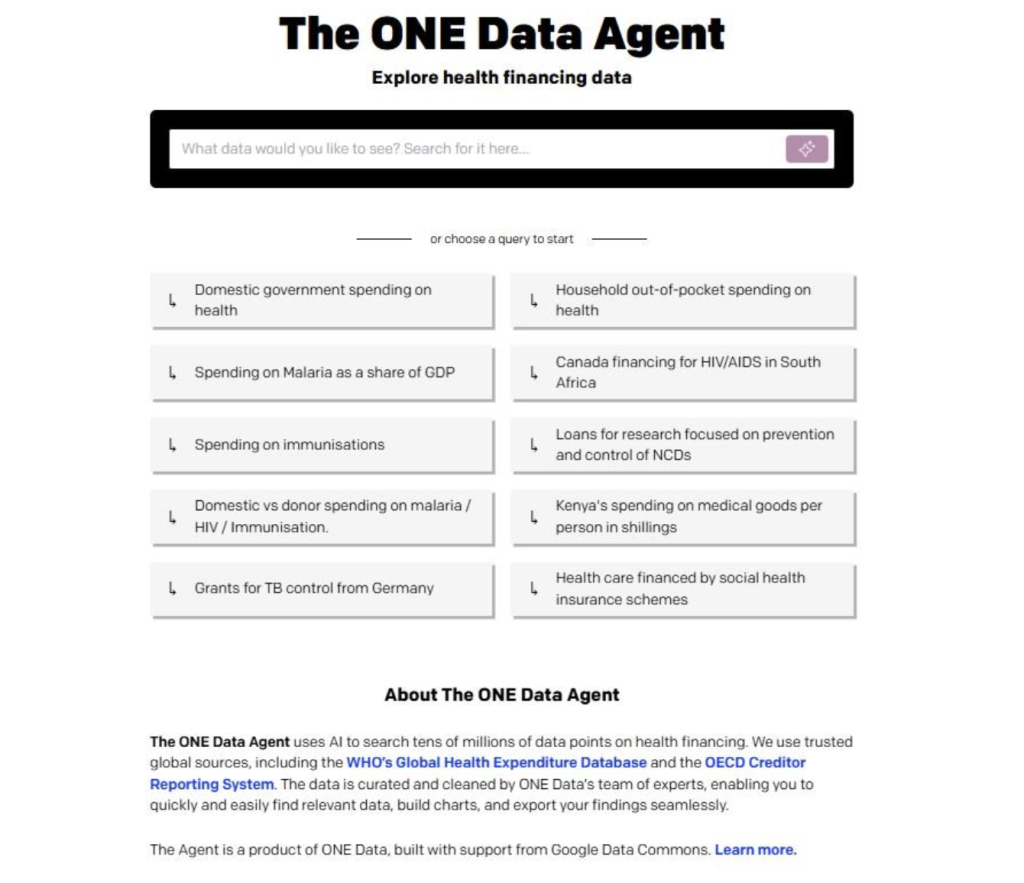
Google released a Model Context Protocol (MCP) server for Data Commons, exposing the project’s interconnected public datasets—census, health, climate, economics—through a standards-based interface that agentic systems can query in natural language. The Data Commons MCP Server is available now with quickstarts for Gemini CLI and Google’s Agent Development Kit (ADK).
What was released
- An MCP server that lets any MCP-capable client or AI agent discover variables, resolve entities, fetch time series, and generate reports from Data Commons without hand-coding API calls. Google positions it as “from initial discovery to generative reports,” with example prompts spanning exploratory, analytical, and generative workflows.
- Developer on-ramps: a PyPI package, a Gemini CLI flow, and an ADK sample/Colab to embed Data Commons queries inside agent pipelines.
Why MCP now?
MCP is an open protocol for connecting LLM agents to external tools and data with consistent capabilities (tools, prompts, resources) and transport semantics. By shipping a first-party MCP server, Google makes Data Commons addressable through the same interface that agents already use for other sources, reducing per-integration glue code and enabling registry-based discovery alongside other servers.
What you can do with it?
- Exploratory: “What health data do you have for Africa?” → enumerate variables, coverage, and sources.
- Analytical: “Compare life expectancy, inequality, and GDP growth for BRICS nations.” → retrieve series, normalize geos, align vintages, and return a table or chart payload.
- Generative: “Generate a concise report on income vs. diabetes in US counties.” → fetch measures, compute correlations, include provenance.
Integration surface
- Gemini CLI / any MCP client: install the Data Commons MCP package, point the client at the server, and issue NL queries; the client coordinates tool calls behind the scenes.
- ADK agents: use Google’s sample agent to compose Data Commons calls with your own tools (e.g., visualization, storage) and return sourced outputs.
- Docs entry point: MCP — Query data interactively with an AI agent with links to quickstart and user guide.
Real-world use case
Google highlights ONE Data Agent, built with the Data Commons MCP Server for the ONE Campaign. It lets policy analysts query tens of millions of health-financing datapoints via natural language, visualize results, and export clean datasets for downstream work.

Summary
In short, Google’s Data Commons MCP Server turns a sprawling corpus of public statistics into a first-class, protocol-native data source for agents—reducing custom glue code, preserving provenance, and fitting cleanly into existing MCP clients like Gemini CLI and ADK.
Check out the GitHub Repository and Try it out in Gemini CLI. Feel free to check out our GitHub Page for Tutorials, Codes and Notebooks. Also, feel free to follow us on Twitter and don’t forget to join our 100k+ ML SubReddit and Subscribe to our Newsletter.








